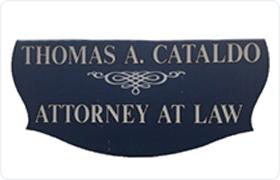 West Orange Eminent Domain Lawyers, New Jersey
West Orange Eminent Domain Lawyers, New Jersey
Sponsored Law Firm
-
 x
x

Click For More Info:
-
Thomas A. Cataldo, Attorney at Law
52 South Street Morristown, NJ 07960» view mapReal Estate Law Tip The Scales In Your Favor!
Thomas A. Cataldo, Attorney at Law has the legal experience you need at affordable rates that can't be beat.
800-834-4291
Lawyers
1-5 of 5 matches
Eminent Domain, Litigation, Real Estate, Commercial Real Estate
Family Law, Eminent Domain, Wills & Probate, Civil Rights



 Thomas Cataldo Morristown, NJ
Thomas Cataldo Morristown, NJ Practice AreasExpertise
Practice AreasExpertise